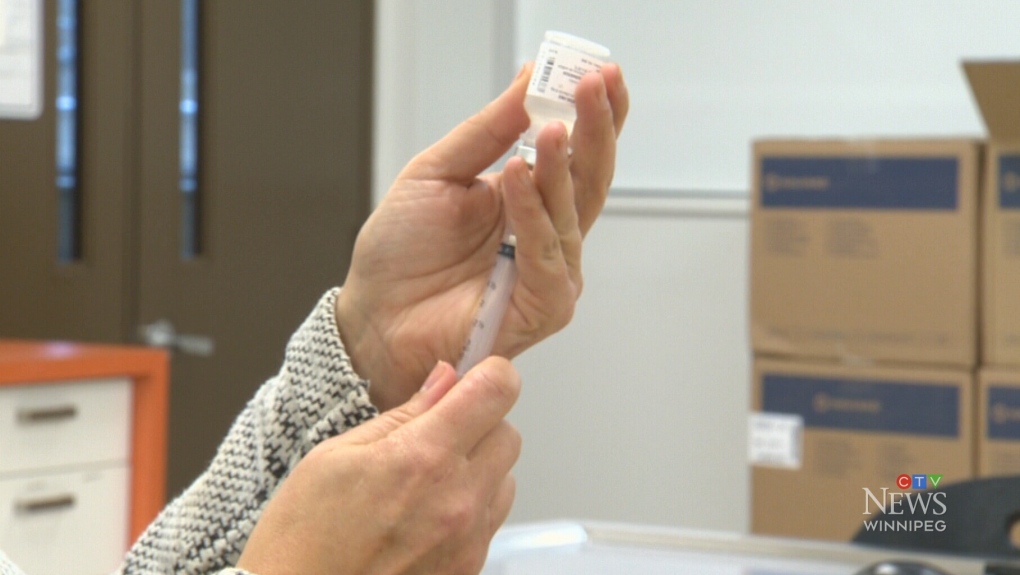New video series to answer questions from multicultural Manitobans about COVID-19 vaccine

An online series aimed at multicultural Manitobans will answer some of the most pressing questions about the COVID-19 vaccine.
U Multicultural said it has developed Doc Talk, a series of interviews with doctors of diverse backgrounds to provide statistics, scientific data and facts to educate about the COVID-19 immunization process.
The community-based media channel said in a news release the series was developed through the Protect MB Community Outreach and Incentive Grant programs.
"It's always great to have an opportunity to talk to people and provide education,” said Jared Bullard, section head of pediatric infectious diseases at the University of Manitoba and associate medical director of Cadham Provincial Laboratory.
“There's a lot of information out there, and it's often hard to know what's appropriate and real versus what's very much misinformation or disinformation."
U Multicultural said many diverse communities in Winnipeg have questions and concerns about the vaccine, and this series aims to answer them.
“We've found in our Manitoba data that people who identify as BIPoC (Black, Indigenous, and People of colour) and lower socioeconomic status are associated with an increased risk of contracting COVID-19 and severe disease or death from getting a COVID infection,” said Manitoba Health Chief Occupational Medical Officer Denise Koh.
The 10-episode series will be released in video format on U Multicultural’s web platforms and 24/7 television stream, as well as on its social media platforms. The radio component will be released on 24/7, web-based radio streaming and shared with local community FM stations.
It will also be available as a podcast on Apple Podcasts, Google Podcasts, Spotify, and Radio Public.
CTVNews.ca Top Stories

'It could be catastrophic': Woman says natural supplement contained hidden painkiller drug
A Manitoba woman thought she found a miracle natural supplement, but said a hidden ingredient wreaked havoc on her health.
After hearing thousands of last words, this hospital chaplain has advice for the living
Hospital chaplain J.S. Park opens up about death, grief and hearing thousands of last words, and shares his advice for the living.
WHO likely to issue wider alert on contaminated cough syrup
The World Health Organization is likely to issue a wider warning about contaminated Johnson and Johnson-made children's cough syrup found in Nigeria last week, it said in an email.
WATCH Video shows dramatic police takedown of carjacking suspects chased through parking lot north of Toronto
Police have released video footage of a dramatic takedown of a group of teens wanted in connection with an attempted carjacking in Markham earlier this month.
Canada, G7 urge 'all parties' to de-escalate in growing Mideast conflict
Canada called for 'all parties' to de-escalate rising tensions in the Mideast following an apparent Israeli drone attack against Iran overnight.
'It was all my savings': Ontario woman loses $15K to fake Walmart job scam
A woman who recently moved to Canada from India was searching for a job when she got caught in an online job scam and lost $15,000.
Families to receive Canada Child Benefit payment on Friday
More money will land in the pockets of some Canadian families on Friday for the latest Canada Child Benefit installment.
After COVID, WHO defines disease spread 'through air'
The World Health Organization and around 500 experts have agreed for the first time on what it means for a disease to spread through the air, in a bid to avoid the confusion early in the COVID-19 pandemic that some scientists have said cost lives.
American millionaire Jonathan Lehrer denied bail after being charged with killing Canadian couple
American millionaire Jonathan Lehrer, one of two men charged in the killings of a Canadian couple in Dominica, has been denied bail.
































